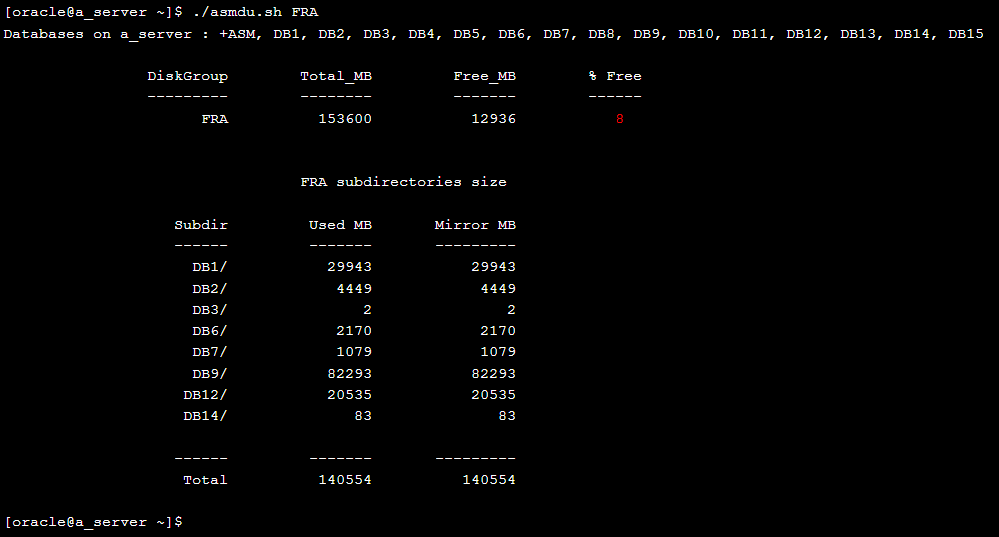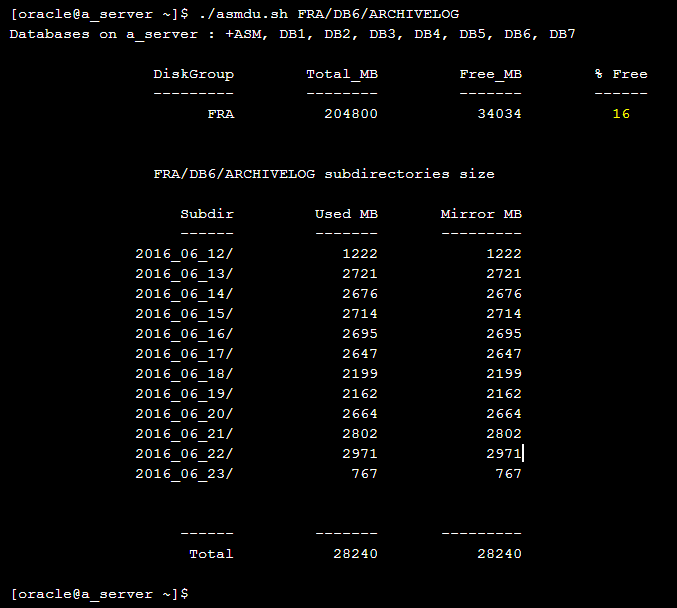ASMCMD> a better DU, version 2
A while ago, I posted
a better "du" for asmcmd . Since then, Oracle 12cR2 beta has been released but it seems that our poor old "du" will not be improved. I then wrote a better "better du for asmcmd" with some cool new features compared to the previous one which was quite primitive. In this second version you will find :
- No need to set up your environment, asmdu will do it for you
- If no parameter is passed to the script, asmdu will show you a summary of all the diskgroups :

- If a parameter (a diskgroup) is passed to the script, asmdu will show you a summary of the diskgroup size with its filling rate and the list of the directories it contains with their sizes :
 Note : you can quickly see in this screenshot that "DB9" consumes the most space in the FRA diskgroup; it is perhaps worth to have a closer look
Note : you can quickly see in this screenshot that "DB9" consumes the most space in the FRA diskgroup; it is perhaps worth to have a closer look
- You can also pass a directory as a parameter and asmdu will then show you the size of each of its subdirectories -- it is useful to quickly see which day has been archivelog intensive as well as finding that there's no archivelog backup for a database as you will find old archivelog directories and more...

- A list of all running instances on the server is now shown on top of the asmdu output; I found that handy to have that list here
- I also put some colored thresholds (red, yellow and green) to be able to quickly see which diskgroup has a space issue; you can modify it easily in the script :
- The only pre-requisite is that oraenv has to work

